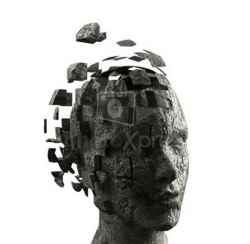What is desirous attachment?
It is not the same as desire – we need desires, but we don’t need attachment. Attachment is “dö chag” in Tibetan, which literally means “sticky desire”. There is a stickiness, neediness, dependency, and self-centeredness associated with attachment. It’s “I need you to make ME happy”, as opposed to “I want to make YOU happy”, which is actual love. Attachment weakens us, and we give away the key to our happiness. Love strengthens us, and we stay in charge of our happiness.
Attachment is all about me and what I can get from you, and love is all about what I can give or do for you. There are three kinds or levels of love, affectionate love, cherishing love, and wishing love. Briefly, affectionate love is just liking people, having a warm, fuzzy feeling, the way our mom feels when she hasn’t seen us for awhile, just unconditionally delighted to see us without that needy, “I want YOU to do something for ME.” On the basis of affection, if we think about how kind someone is, we come to cherish them – we find them special, we want to take care of them, their happiness matters. So because we cherish this person, our question is “Are they happy?” The answer is usually, “Well, they could be a lot happier,” and we wish for them to have what they need, what they want, to be happy now and always. This is wishing love.
Attachment stands in horrible contrast to all types of love, but to begin with it can be quite hard for us to tell them apart as our relationships are so mixed up. It is one of Buddha’s great kindnesses that he distinguishes between them so clearly. It can save us from immense heartache. We can learn to reduce the attachment and increase the love in all our close friendships, which is guaranteed to bring us more meaning and joy.
“Desirous attachment is a deluded mental factor that observes its contaminated object, regards it as a cause of happiness, and wishes for it.”
“Contaminated” means tainted by the ignorance of self-grasping, which makes it seem as though the object or person we are attached to is real, “out there”, independent of our mind, as if we are uninvolved in bringing it into being. Attachment externalizes happiness, thinking it inheres in things and people, as opposed to being part of a peaceful mind. It can be a cream donut or a person – neither one has anything to do with me. It seems to be capable from its own side of giving me the happiness I want. And because our happiness is out there, we need to go get it.
(In the case of attachment, the object or person seems to have the power to make me happy. In the case of anger, it seems to have the power to make me unhappy.)

